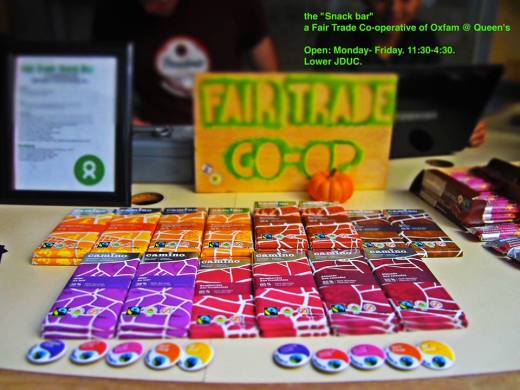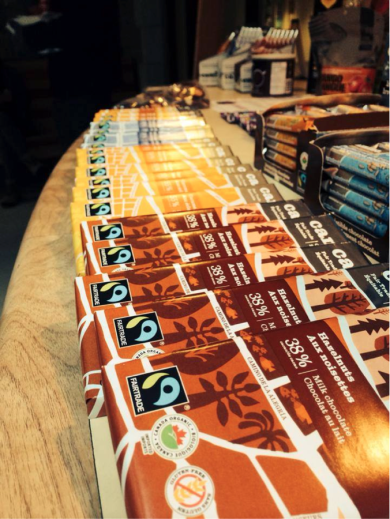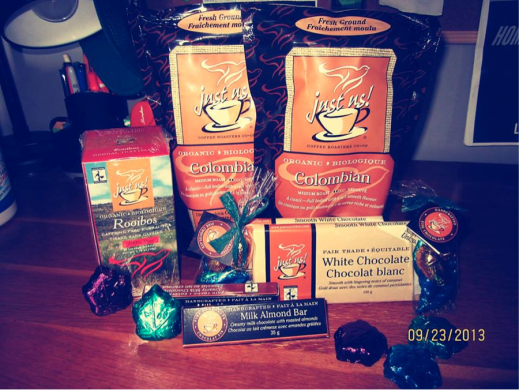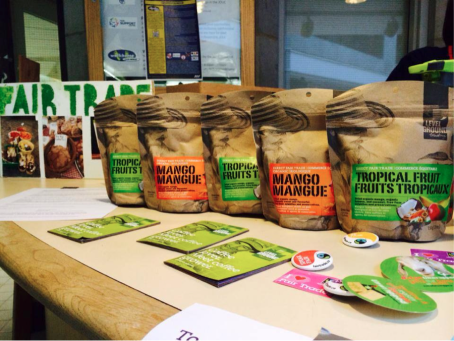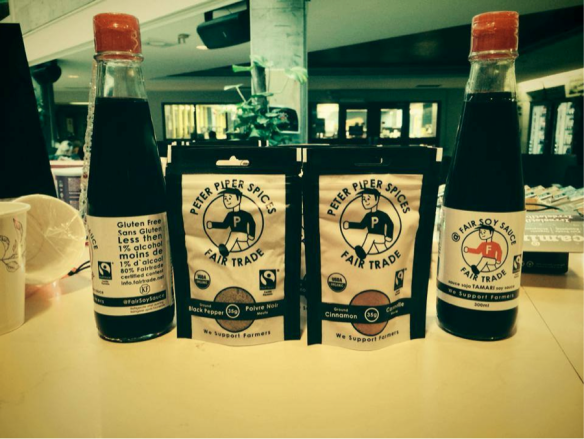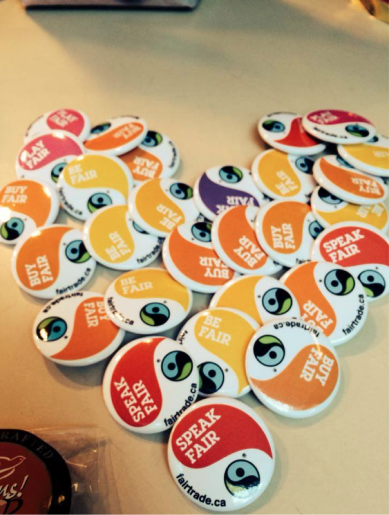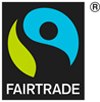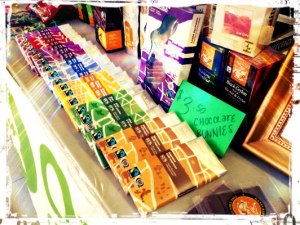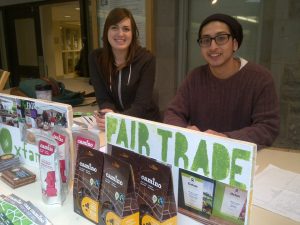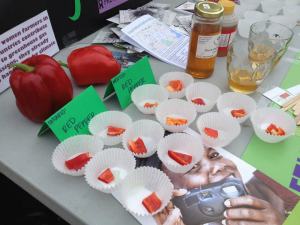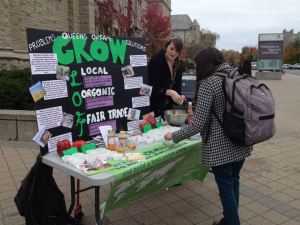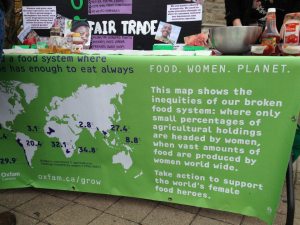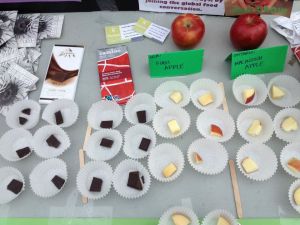Just kidding. Doing something just because Gwyneth Paltrow does it too is not the best idea. But here’s a question that the Oxfamily gets asked often. Apart from health reasons, why should people other than incredibly wealthy and out of touch celebrities bother spending extra money on ethically produced foods when our contributions will probably not make such a difference in the big picture?
“Every time you spend money you’re casting a vote for the kind of world you want.” This quote by Anna Lappe is the reason I personally think we should be educated and conscientious about what we buy. Being someone who says they care about the environment and social justice while not making an effort about it is just as ridiculous as being a member of the Green Party who drives out to the woods ever night in a SUV to start forest fires. This is because our economy runs on two principles that anyone who has gone to the first lecture of Econ will be able to tell you.
1. Our economy organizes itself based on supply and demand.
2. Everyone wants to maximize profits.
In relation to L.O.F.T foods, this means that if producers can see a visible demand for their products, they’ll make more of it. If there is more demand for L.O.F. T foods, companies that support this endeavor will continue to exist. In turn, there will more farmers with the ability to invest money back into their own communities, which helps their local economies thrive. More kids will be in school and there will be less greenhouse gases because of less transportation costs. Additionally, this mean you eat less pesticides, get less sick from animals that have been pumped so full of antibiotics and growth hormones that they are practically exploding.
Still, it’s true that the effects of buying ethical foods are not immediately visible. Though it would be nice, it’s not like the smogs in cities lift ever so slightly every time we buy an organic tomato. But perhaps the effects of many people supporting L.O.F.T foods are more obvious than you think. The healthy foods movement is definitely main-stream now. Think about it, in movies like 21 Jump Street (it’s so funny, go watch it), the cool kids are now the skinny “crunchy granola dudes” who have Eco-friendly transportation instead of jocks with sports cars. Who would’ve thought that would happen? Also, why else would so many plastic wrapped hot dogs claim to be made of “all natural ingredients”? Brands would not advertise to have organic or natural ingredients if they didn’t think it would help people would buy their stuff. It’s not all about food either – people are starting to care about what they wear. Now, it’s more than just random indie clothing brands that are supporting Fair Trade. Think about how popular American Apparel is, or the fact that not too long ago, Stella McCartney (the brand) joined the Ethical Trading Initiative. The reason brands publicize that they do this is because they recognize how the values of the world is changing, and they are adjusting themselves to cater to what we demand.
P.S. Guess what? Fair Trade has existed since 1988, and it’s going to stick around because we want it to.
– Jennie
Information borrowed from:
http://www.fairtrade.org.uk/what_is_fairtrade/history.aspx

